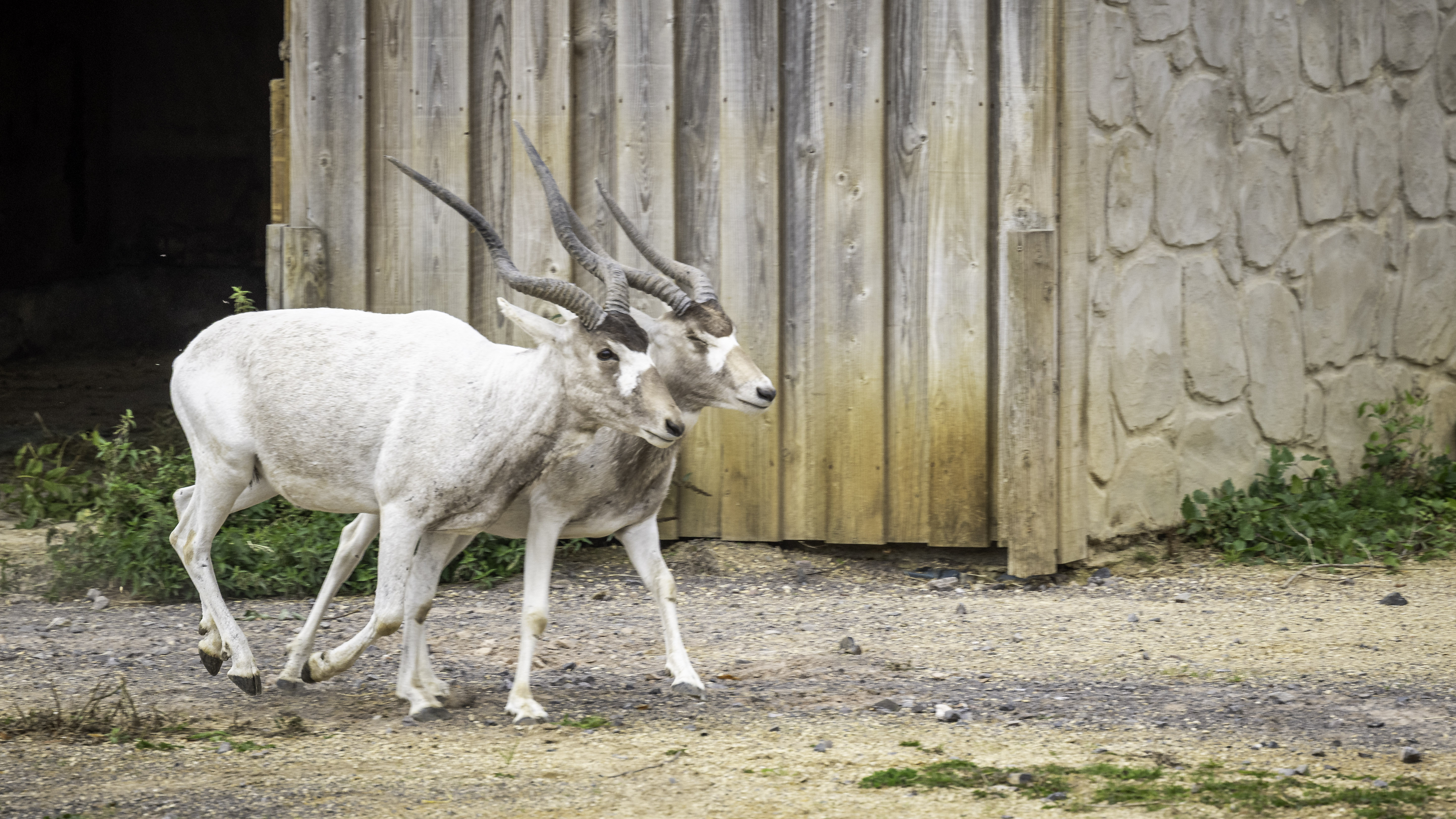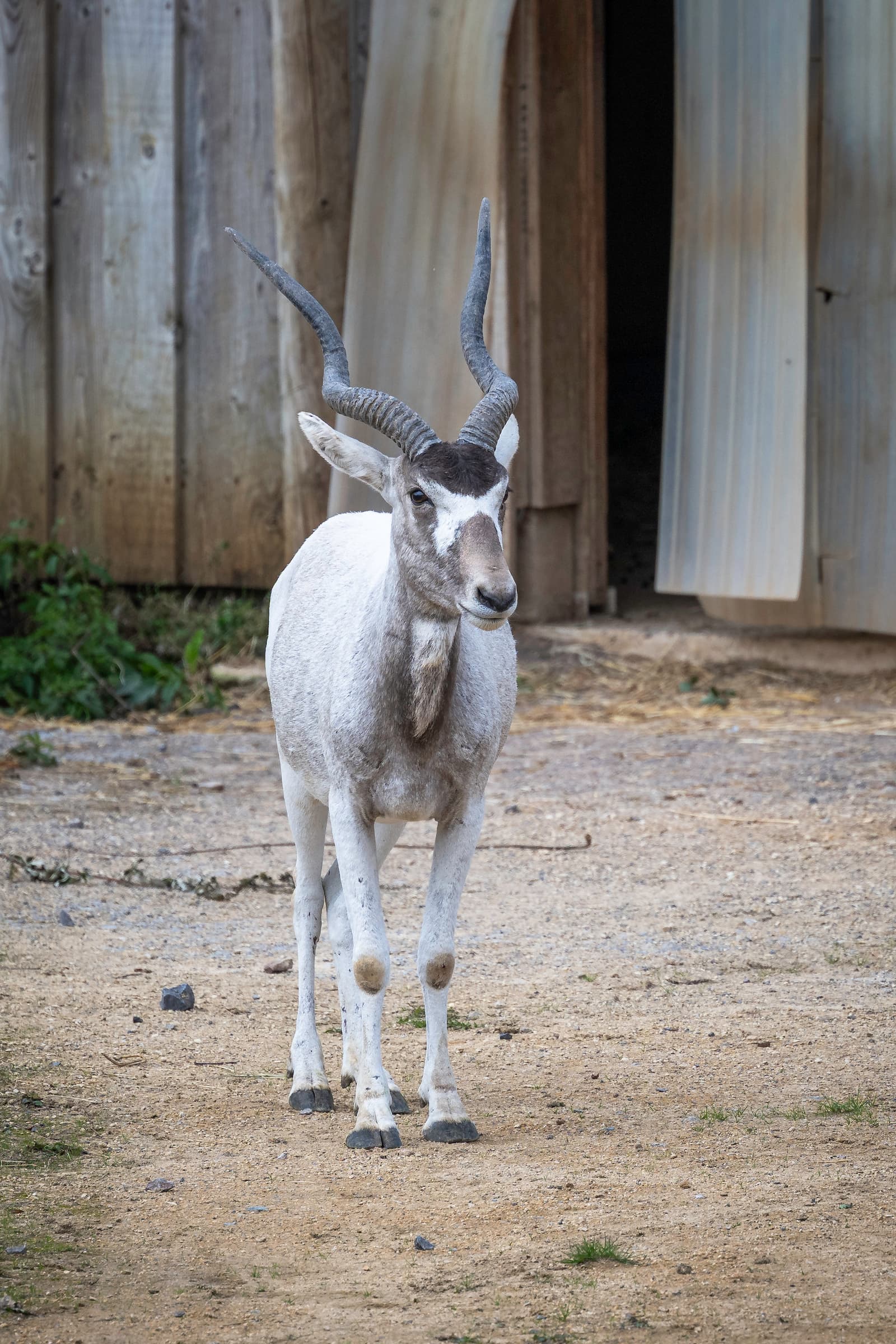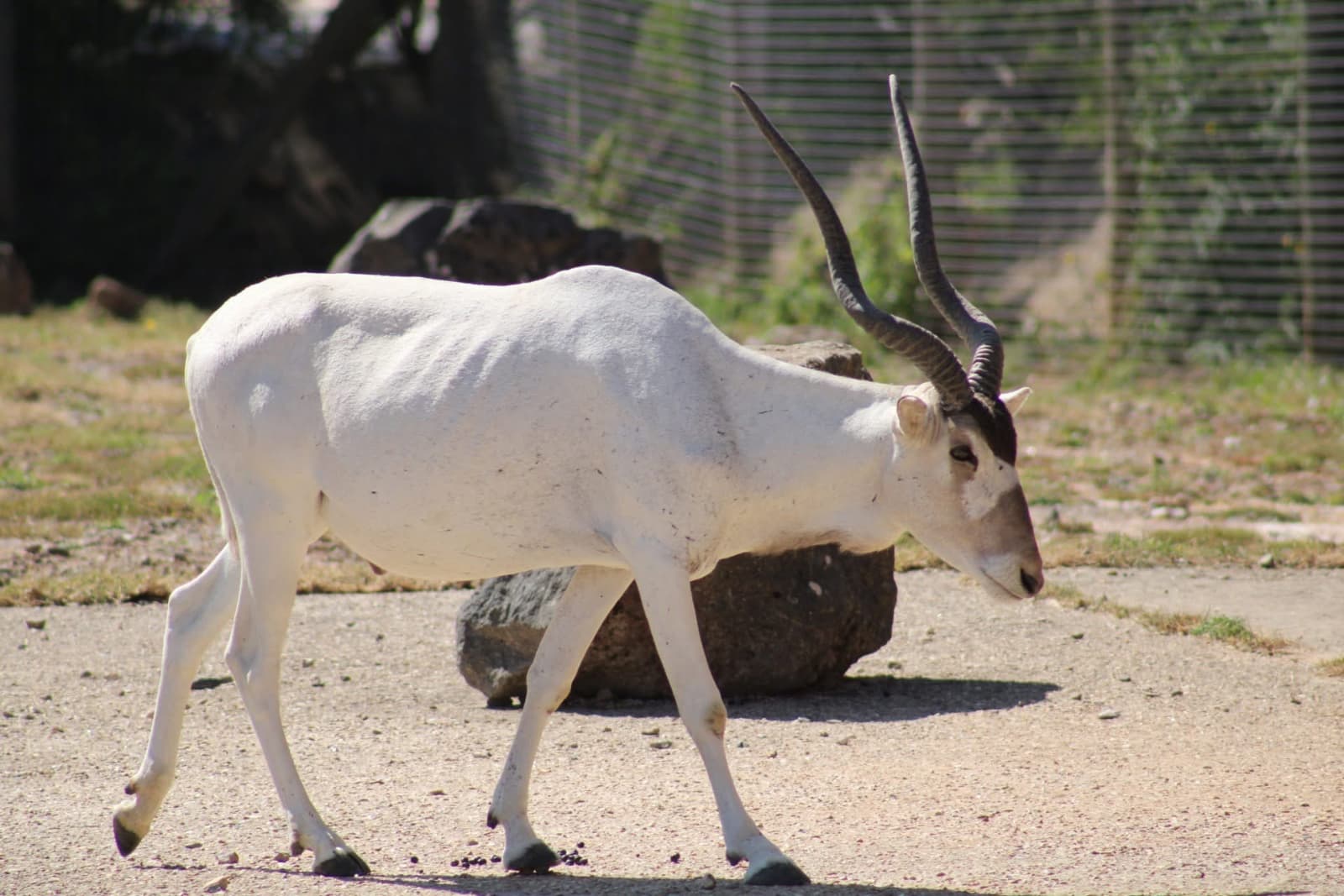
Say Hello to Phoenix and Nico
Posted on: 6 October, 2025
In September, we welcomed two new male Critically Endangered addax, named Phoenix and Nico, to Bristol Zoo Project from Marwell Zoo.
 Photo credit: Doug Lodge
Photo credit: Doug Lodge
With fewer than 100 remaining in the wild, addax are an antelope species that are adapted to living in extreme desert temperatures. They have been classified as Critically Endangered by the IUCN since 2000 and face an extremely high risk of extinction due to a number of threats, including overhunting for meat and leather, habitat loss from oil exploration, habitat degradation, and competition with livestock in the Sahelo-Saharan region.
Living in some of the harshest regions of the Sahara Desert, from Niger and Chad, as well as along the borders of Mali and Mauritania, their pale coats enable them to reflect the heat within the desert habitat, while their large hooves spread out to help them move in the sand. They also keep cool by feeding in the cooler hours of the day and at night, as well as finding shelter and rest during the hottest parts of the day. In winter, their coats become a brownish grey to better absorb heat and stay warm.
 Photo credit: Doug Lodge
Photo credit: Doug Lodge
Burrowing for shelter, addax dig "beds" or pits in the sand up to 20cm deep to provide shade and shelter from the heat and brutal elements of sandstorms during the day. They eat desert grasses, shrubs, and can survive on the moisture from succulent plants and wild melons, which provide hydration in environments where water is scarce.
 We’ll slowly be introducing our two new arrivals to the other animals in the Bénoué National Park area over the next few weeks, so book your visit to see them now!
We’ll slowly be introducing our two new arrivals to the other animals in the Bénoué National Park area over the next few weeks, so book your visit to see them now!
Bristol Zoo Project is part of Bristol Zoological Society, a conservation and education charity. Every visit supports our conservation work in the UK and around the world.

